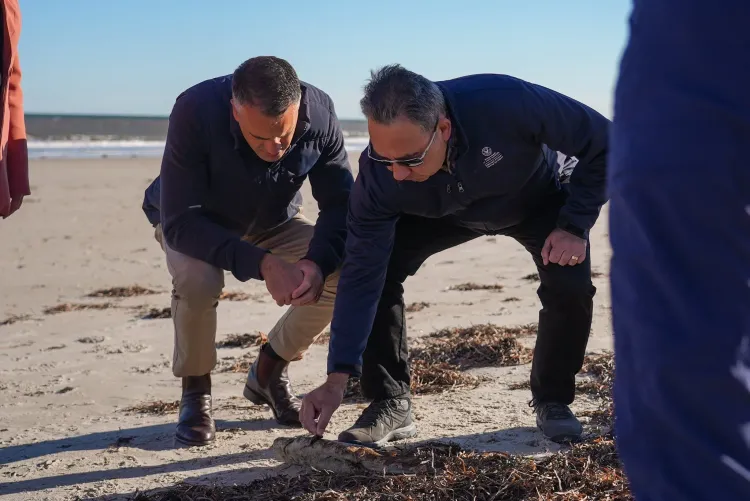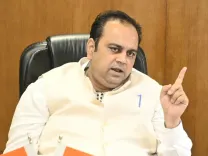Has the South Australian Premier Requested Millions in Federal Funding to Combat the Toxic Algae Crisis?

Synopsis
Key Takeaways
- This outbreak is caused by the toxic algae Karenia mikimotoi.
- The crisis has led to the death of numerous marine species.
- The South Australian Premier has requested federal funding for relief efforts.
- Experts believe this situation requires urgent national attention.
- State and federal governments are urged to collaborate for effective solutions.
Canberra, July 21 (NationPress) The Premier of South Australia (SA) has formally requested substantial funding from the federal government to tackle a toxic algae outbreak that is inflicting severe damage on marine life.
On Monday, Peter Malinauskas disclosed that he has engaged in discussions with federal officials in recent days to secure millions of dollars in emergency funding to address the toxic algal bloom.
Since its discovery in March, the toxic algae Karenia mikimotoi off the coast of SA has led to the demise of tens of thousands of marine creatures, including sharks, penguins, and octopuses, across hundreds of kilometers of coastline.
"This is a natural disaster. It should be recognized as such, and I have communicated my views very clearly to the federal government this morning," Malinauskas conveyed to News Corp Australia.
He emphasized that federal financial support would enhance state government relief initiatives for commercial fishers and facilitate further scientific research and recovery operations, as reported by Xinhua.
Experts have indicated that the algal bloom correlates with a persistent marine heatwave off the SA coast and is unlikely to recede without a significant alteration in environmental conditions.
The premier's remarks coincided with a visit on Monday by Murray Watt, the federal environment minister, to areas impacted by the algae.
Politicians, marine specialists, and conservation organizations have urged the federal government to officially classify the algal bloom as a national disaster, which would streamline governmental efforts and unlock financial support for affected communities.
Nina Wootton, a marine scientist from the University of Adelaide, stated in a media release on Monday that the algal bloom constitutes a major ecological crisis that is "crying out for help" from the government.
"While it has not yet been formally declared a national disaster, the magnitude of this event, affecting hundreds of kilometers of coastline and devastating vast numbers of marine life, is unprecedented for the region and requires national attention," she asserted.
Malinauskas has convened a meeting of the state government's Emergency Management Cabinet Committee on Tuesday to devise an action plan.









